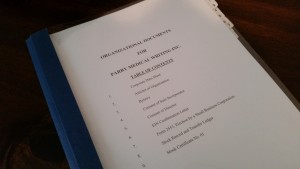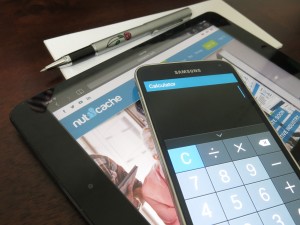 I recently mentioned the importance of choosing a specific structure for your business, and mentioned that it’s not a “one size fits all” situation. I thought I’d share my situation to illustrate how my experiences over the years have influenced my decisions on the business entity front.
I recently mentioned the importance of choosing a specific structure for your business, and mentioned that it’s not a “one size fits all” situation. I thought I’d share my situation to illustrate how my experiences over the years have influenced my decisions on the business entity front.
The Beginning
I started doing freelance work a long, long time ago – basically working on the occasional project in my free time, while I was working a full-time job. Initially it was just a bit of fun, I didn’t really think of it as anything more. Then eventually, over the years, I began realizing I could actually build this thing up into a full-blown business.
But during this early phase, while I still had a full-time job, I started out as a sole proprietor, as do many small business owners.
This was the easiest option – it didn’t require me to set up a legal and formal business entity (which would need to be legally and formally dissolved if I later decided this whole gig wasn’t going to work for me). However, as you’ve now guessed from some of my earlier blog posts, it’s the least profitable for a business owner, and also offers no protection of personal assets in case of legal action.
f
Starting out in Full-Time Self-Employment
Once I made the leap into full-time self-employment, I knew it was time for me to form a business entity. After discussions with a CPA, I was advised to choose election as an S-Corp, and that’s precisely what I did. Not only would it provide some protection of personal assets, but it would likely save me a lot (thousands) in taxes each year.
Fast-forward to the end of last year, when I relocated from Massachusetts to Indiana – I decided to restructure my business. Bottom line – I wasn’t happy as an S-Corp.
g
Restructuring
My unhappiness arose mostly from the burdensome administrative work and record-keeping involved as an S-Corp. As ridiculous as it sounds, even as a single-member S-Corp, you’re required to set up a board of directors (yes, you’re all of them), file annual reports, hold directors’ and shareholders’ (again, yes, you’re all of them) meetings, and have the secretary (again, you) keep corporate minutes from each meeting (detailing who was present, the reason for the meeting, etc).
An attorney had taken care of all the incorporation paperwork for me, and had told me I’d need to hold regular meetings – including the obligatory annual business meeting (recording things like important decisions made through the year), followed by filing of the annual report, and also be sure to hold meetings throughout the year for things like big purchases (like equipment), or decisions to take on contractors, etc., etc. (basically “documenting” these events like a meeting, with minutes).
Sure, good record-keeping is important for all businesses, whatever the structure. But this all seemed really hazy to me – the Type A in me likes to know I’m doing things properly, crossing every t and dotting every i, as is legally required. Just being told to “hold annual meetings, and have meetings for other things during the year” doesn’t really constitute me feeling like I suddenly know what I’m doing as a business owner. I like SOPs and templates, they make me feel good about doing the job right!
Overall, all the administrative stuff, and the “not knowing” if I was doing things properly when it came to meetings, weren’t good for me.
So I used my relocation out of state as an opportunity to restructure everything. A couple of months before my move, I contacted a CPA in my new town. I’d found her after doing my research, and decided I wanted to take over my business accounts. She was clearly a CPA whose work was very focused on small businesses, and, after chatting with her on the telephone, I set things in motion for her to be my new CPA.
d
The Best of Both Worlds
She gave me a lot of great advice by telephone, and as a result, when I eventually relocated, I chose to form an LLC but also filed Form 2553 to elect to be treated as an S-Corp for tax purposes. Although this offers the tax benefits of an S-Corp, my company is still legally structured as an LLC, and therefore requires a lot less paperwork and fewer ongoing administrative formalities to follow than does a corporation. Naturally, I still keep great records about my business transactions, but I don’t need to file annual reports, hold regular meetings, etc., etc. It’s all much less burdensome.
I’ve no idea why, but this option wasn’t presented to me when I initially incorporated my business. But I’m much happier now with the day to day administrative and record-keeping requirements – I feel like I know what I’m supposed to be doing!
d
Some Interesting Articles For You
I recently saw this intriguing article in which an attorney discussed why he typically prefers an LLC over an S-Corp.
And here’s another, discussing some of the caveats to limited liability when you form an LLC.
d
If you haven’t already done so, speak with a CPA or business attorney to figure out which option is a best-fit for your business.
g








Follow Me!